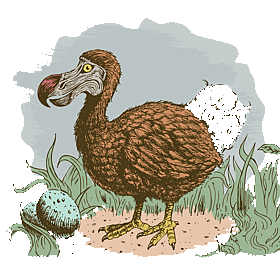 Saving the planet is a huge notion to grasp on. We can incorporate the word “biodiversity” to comprise the entire concept. The complexity of our planet provides a suitable environment for the millions of distinct biological species. However, the Earth began to lose species and habitats at an increasing rate due to human activity. The conservation of biodiversity is very important. Biological diversity is the resource upon which families, communities, nations and future generations depend. Without biological diversity, life as you know it would end. Fortunately, we have World Wildlife Fund, which is Canada’s leading conservation organizations, taking a step in the right direction.
Saving the planet is a huge notion to grasp on. We can incorporate the word “biodiversity” to comprise the entire concept. The complexity of our planet provides a suitable environment for the millions of distinct biological species. However, the Earth began to lose species and habitats at an increasing rate due to human activity. The conservation of biodiversity is very important. Biological diversity is the resource upon which families, communities, nations and future generations depend. Without biological diversity, life as you know it would end. Fortunately, we have World Wildlife Fund, which is Canada’s leading conservation organizations, taking a step in the right direction. Maria Neira, Director of WHO's Department forHuman health is strongly linked to the health of ecosystems, which meet many of our most critical needs.
the Protection of the Human Development
Biodiversity has declined by more than a quarter in the last 35 years due to habitat destruction and wildlife trade. It is difficult to determine how much species we are losing because we don't know exactly how much we have to begin with. However, we have just about enough information to prove that it is harmful.
The dodo is an extinct flightless bird,
once a native of the island of Mauritius.
Population growth and our consumption of natural resources are the main reasons why over 500 species are dangerously close to extinction.
Illegal logging is a profitable activity and this over-exploitation is currently unsustainable.
Through a scientific analysis, experts were able to come up with a conclusion that the declining population of species we are seeing today is estimated to be between 1 000 and 10 000 times higher than the natural extinction rate.*
* The natural extinction rate is the relative amount of species extinctions that would occur if humans were not around.
World Wildlife Fund Canada plays a major leadership role to assist in securing the future of biodiversity and the abundance of life on Earth. “By 2050, the integrity of the most outstanding natural places on earth is conserved, contributing to a more secure and sustainable future for all.” WWF promises a better future. To achieve this, WWF will be working with partners worldwide promoting, developing and implementing lasting solutions to the environmental challenges that we all face.

References:
Commented Blog Posts:


